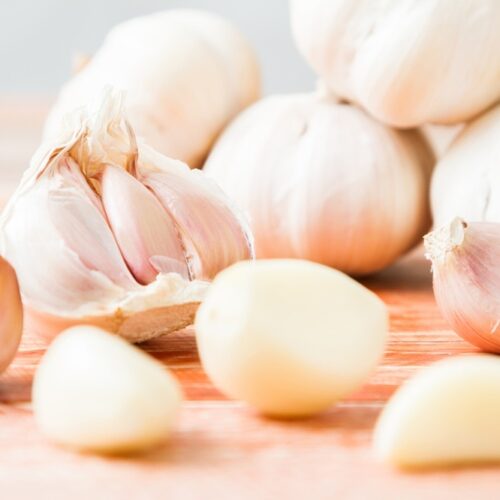
Nutritionist Zoe Wilson shows us 10 easy things we can do every day to bring our cholesterol down.
While our body does need some cholesterol, too much is definitely not a good thing. Having high cholesterol is one of the major risk factors for coronary heart disease, and contributes to the build-up of fatty plaque on the walls of our arteries that may lead to a heart attack or stroke. This may sound a little scary but the good news is that it’s also one of the risk factors that you can do the most about. While most of us know that improving our diet by eating lots of fresh fruit and veges, wholegrains and lean protein, quitting smoking and exercising more can help, many of us aren’t sure exactly what that means in practice.
Here are 10 things you can do every day to keep your cholesterol levels in check.
1. Add oats to your day
A review of studies published in Nutrition Reviews found that eating 3g beta-glucan (a type of soluble fibre that oats and barley contain particularly high amounts of) each day could reduce your total cholesterol and LDL (‘bad’)cholesterol, on average, by five per cent and seven per cent respectively in people with normal or high cholesterol.
You can get 3g beta-glucan by including 60-80g oats and barley throughout your day. Try porridge for breakfast, an oat-containing bread at lunch and an oat-based muesli bar as a snack inthe afternoon.
2. Walk daily, even if just for 10-15 minutes
A recent British study showed that in sedentary people aged 40-66 years old, walking once a day for 20-40 minutes at a brisk pace reduced their cholesterol levels by eight per cent. If you don’t have time for a longer walk, they also found that two 10 to 15 minute walks a day brought the figures down by six per cent. Don’t like walking? You can run, cycle, swim or dance — as long as you’re puffing!
3. Eat plant sterols
Including 25g (about five teaspoons) plant-sterol containing reduced-fat spread each day (equivalent to a total of 2-3g plant sterols) has been shown to help to reduce cholesterol absorption by up to 10 per cent. Also, the more plant foods you eat, the more plant sterols you will get in your diet.
4. Include a handful of nuts a day
Regularly including almonds, pecans, walnuts and macadamias have all been shown to reduce cholesterol in a number of studies. Nuts are high in heart-healthy unsaturated fats so while they are good to include daily, be careful of portion size (a handful is about 30g) to make sure you are not adding too much extra energy to your day, especially if you are trying to reduce your weight. Sprinkle walnuts on a salad or grab a handful of almonds to have as a snack in the afternoon.
5. Eat beans
Beans and lentils (or legumes) including soy have long been thought to help reduce cholesterol levels. A large review of 43 studies published in the Journal of the American College of Nutrition concluded that eating 15-30g soy protein daily (one to two serves) resulted in an average reduction in LDL (‘bad’) cholesterol of six per cent, and three per cent increase in HDL (‘good’) cholesterol.
It’s not just soy that may help though — a second meta-analysis of 10 clinical trials (although with only 268 participants) found including non-soy legumes (such as chickpeas, pinto beans, baked beans and navy beans) resulted in significant decreases in LDL cholesterol and triglycerides (another type of fat found in the blood that may increase the risk of heart disease, and an average reduction of total cholesterol by approximately five per cent.
Try including lentils, beans and chickpeas in stews, soups, curries or bolognese, and include soy milk, tofu or soy-based vegetarian products throughout the day.
6. Eat oily fish
Salmon, tuna, sardines and some mackerel contain high amounts of omega-3. Long-chain omega-3 fatty acids found in fish have been found to reduce LDL cholesterol levels and increase HDL cholesterol levels (particularly if you also have high triglycerides). Add canned tuna to a salad or sandwich at lunch, put a few slices of smoked salmon on your toast in the morning or cook a fillet of fresh salmon or tuna for dinner a few times a week.
7. Swap butter for heart-healthy oils
Butter is around 50 per cent saturated fat and is often eaten every day. Try swapping butter for oils such as olive, avocado and canola in cooking, and plant-based spread or avocado for spreading on toast and sandwiches. Also think about reducing the amount of foods you eat that are made with butter. Swap cakes, pastries and biscuits for fruit, reduced-fat yoghurt or reduced-fat cheese and crackers. Or make your own at home using reduced-fat spreads. Making simple swaps to reduce your saturated fat intake can reduce your total cholesterol by up to 10 per cent.
8. Include psyllium
Psyllium is another source of soluble fibre, so it can help to lower cholesterol absorption. In one study of men and women with elevated cholesterol, taking a teaspoonful (5g) of powdered psyllium twice a day lowered total cholesterol levels by almost five per cent and LDL cholesterol by almost seven per cent over six months. Sprinkle a tablespoon of psyllium on cereal or over salads or add it to your morning smoothie. You can also bake it into healthy breads and muffins or try adding a supplement such as Benefiber or Metamucil.
9. Limit processed meats to no more than two serves a week
Saturated fat is one of the major contributors to high cholesterol levels. Processed meats such as salami are particularly high in saturated fat (averaging 3g sat fat per 25g serve) so should be only eaten occasionally. Instead, swap for lean proteins such as chicken breast, fresh or canned tuna, steak and lean lamb mince.
10. Try tea
Research suggests certain compounds in tea called catechins may help lower cholesterol absorption. According to one study, people with mildly-high cholesterol levels who drank five cups of black tea daily had an average drop of five per cent in total cholesterol and 11 per cent in LDL cholesterol. Another study, a meta-analysis of 20 randomised control trials, found a similar result with green tea. The researchers found that drinking green tea or taking a green tea extract capsule reduced total and LDL cholesterol levels by as much as five to six points.
Other things you can do
Reduce your alcohol intake
You may have heard that drinking alcohol — particularly red wine — is good for your heart and may help to reduce cholesterol levels. While red wine may help raise your HDL cholesterol modestly, it is also a common contributor to excess weight, which is one of the biggest risk factors for high total and LDL cholesterol. So, if you choose to drink (and especially if you have extra weight to lose), keep to a maximum of only one standard drink per day for women and two standard drinks per day for men.
Stop smoking
Besides the many other reasons to quit, ditching this habit has been shown to increase your HDL (‘good’) cholesterol levels by as much as 10 per cent. The Heart Foundation tells us smoking is the most important preventable cause of heart disease. Visit www.quit.org.nz or call Quitline on 0800 778 778 for advice.
An apple a day…
Apples are a good source of pectin, a type of soluble fibre that reduces cholesterol absorption in the gut.
Disclaimer: The advice provided in this article should not replace medication and supervision of your cholesterol levels provided by your doctor. See your GP or a dietitian or qualified nutritionist for personalised dietary advice, especially if you have high cholesterol or are at high risk of heart disease.
What’s your cholesterol level?
Your cholesterol level is used, along with other risk factors, to assess your long-term risk for cardiovascular disease (CVD). Discuss with your GP whether you should have a cholesterol test. Getting older is a risk factor.
While there is no normal level, for CVD, diabetes or a known risk level for CVD, optimal levels are:
- Less than 4.0mmol/L in total
- Less than 2.0mmol/L for LDL cholesterol
- More than 1.0mmol/L for HDL (‘good’) cholesterol
- Less than 1.7mmol/L for triglycerides
- A ratio of total cholesterol to HDL cholesterol of less than 4.0
Did you know?
Eggs got a bad name when it came to choleseterol for a while. It was mistakenly believed that the cholesterol content of eggs would increase cholesterol levels, but research has found that eating saturated and trans fat are actually much more of a problem than eating cholesterol. The Heart Foundation advises that for most people eggs can be included as part of a normal, varied diet. New Zealanders’ average egg consumption amounts to three eggs each week and for those with cardiovascular disease this amount is normally fine.
www.healthyfood.com











